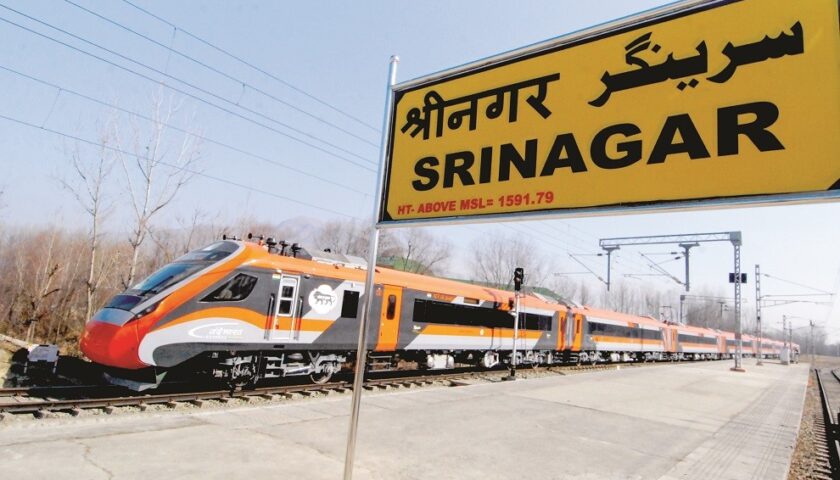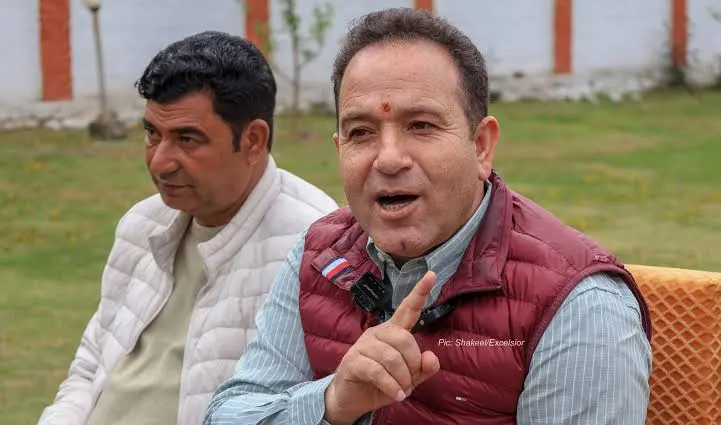Farooq Abdullah Asserts J&K’s Autonomy: “We Are Not Slaves of the Centre”
By: Javid Amin
In a powerful and impassioned statement, National Conference president Farooq Abdullah declared that the people of Jammu and Kashmir are not subservient to the Centre but are the rightful owners of their land. This assertion was made during a press interaction in Beerwah, Budgam district, on Thursday.
A Bold Declaration
“Let me tell you one thing… we are not their slaves. People of this state are the owners of this place, remember it,” Abdullah emphasized, his voice resonating with conviction. The former chief minister’s remarks came in response to a question about whether he expected the Centre to restore statehood to Jammu and Kashmir following the upcoming Assembly elections.
Context and Background
Farooq Abdullah’s statement is not just a spontaneous outburst but a reflection of the deep-seated sentiments of the people of Jammu and Kashmir. The region has a complex history, marked by political upheaval, demands for autonomy, and a unique cultural identity. The abrogation of Article 370 in August 2019, which granted special status to Jammu and Kashmir, has been a contentious issue, leading to widespread discontent and calls for the restoration of statehood.
The Significance of Beerwah
Beerwah, where Abdullah made his statement, is not just another town in Budgam district. It holds historical and political significance. Known for its picturesque landscapes and vibrant culture, Beerwah has been a focal point of political activities. Abdullah’s presence in Beerwah, accompanying the party candidate for the filing of nomination papers, underscores the importance of this region in the political landscape of Jammu and Kashmir.
Addressing the BJP Supporters
In a direct message to the supporters of the Bharatiya Janata Party (BJP) in Kashmir, Abdullah did not mince words. “I tell their lapdogs to get back to their senses. There will be a storm, and they will have to face it,” he warned. This statement reflects the growing tension and political rivalry between the National Conference and the BJP in the region.
The Call for Statehood
The demand for the restoration of statehood to Jammu and Kashmir has been a persistent one. Abdullah’s remarks highlight the urgency and importance of this issue. The abrogation of Article 370 and the subsequent bifurcation of the state into two Union Territories—Jammu and Kashmir, and Ladakh—has been a point of contention. Many political leaders, including Abdullah, have been vocal about the need to restore the region’s special status and statehood.
Historical Perspective
To understand the gravity of Abdullah’s statement, it is essential to delve into the historical context. Jammu and Kashmir’s accession to India in 1947 was accompanied by promises of autonomy and special status. Article 370 was a constitutional recognition of this unique status. However, the abrogation of this article in 2019 altered the political dynamics of the region.
The Political Landscape
The political landscape of Jammu and Kashmir is intricate and multifaceted. The National Conference, led by Farooq Abdullah, has been a significant player in the region’s politics. The party has a long history of advocating for the rights and autonomy of the people of Jammu and Kashmir. Abdullah’s statement is a continuation of this legacy, emphasizing the need for self-governance and autonomy.
The Role of the Centre
The relationship between the Centre and the state of Jammu and Kashmir has always been complex. The abrogation of Article 370 was seen by many as an attempt by the Centre to exert greater control over the region. Abdullah’s statement is a reminder that the people of Jammu and Kashmir have a distinct identity and a right to self-governance.
The Path Forward
As the region prepares for the upcoming Assembly elections, the demand for the restoration of statehood is likely to be a central issue. Abdullah’s statement sets the tone for the political discourse, emphasizing the need for autonomy and self-governance. The people of Jammu and Kashmir, as Abdullah asserts, are not mere subjects of the Centre but the rightful owners of their land.
The Voice of the People
Farooq Abdullah’s statement resonates with the sentiments of many in Jammu and Kashmir. The demand for statehood is not just a political issue but a reflection of the people’s desire for autonomy and self-governance. The upcoming elections will be a crucial test of these aspirations.
Bottom-Line
In conclusion, Farooq Abdullah’s statement is a powerful reminder of the unique identity and aspirations of the people of Jammu and Kashmir. As the region navigates its political future, the demand for statehood and autonomy will continue to be central themes. Abdullah’s words echo the sentiments of many, emphasizing that the people of Jammu and Kashmir are not slaves of the Centre but the rightful owners of their land.




